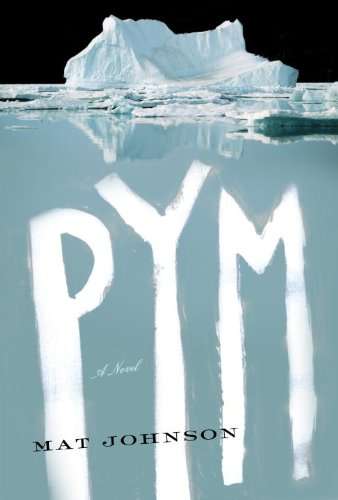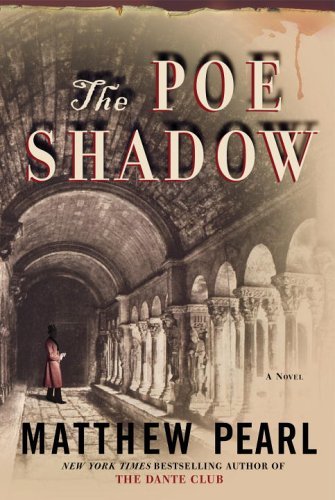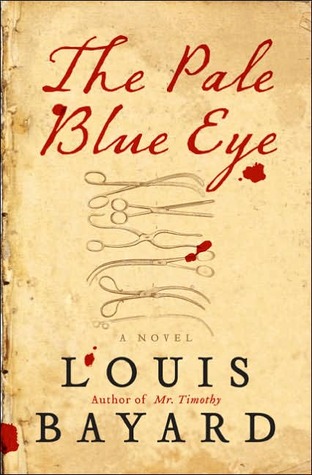
I don’t fault authors for appropriating Poe. Poe himself routinely swiped other writers’ ideas, plot elements, even whole chapters. But to make a success of it, a writer will require a solid idea plus some talent for writing.
Both are on display in Mat Johnson’s 2011 novel, Pym. Its protagonist is one Chris Jaynes, a professor of African-American literature, whose course on “Dancing with the Darkies: Whiteness in the Literary Mind” perennially fails to fill. Denied tenure, and soon uncovering proof that Poe’s novel, The Narrative of Arthur Gordon Pym of Nantucket, was actually a factual account, Jaynes sets out with a crew of screwballs to find the lost, black-inhabited island of Tsalal described in Poe’s yarn.
Johnson’s is a novel with attitude: funny, irreverent, satirical. Its goofiness connects it truly with Poe’s Pym, a work with silliness as its weft. Along with laughs, Johnson’s book offers provocative takes on race relations.
Two other Poe knockoffs are less successful.


In The Pale Blue Eye, detective Gus Landor investigates a series of deaths at West Point in 1830. Poe shows up as a cadet and legman for Landor. The book alternates between segments narrated by Landor and by Poe. Landor is a less interesting character than just about any detective created in the past 20 years, so his segments leave the reader, Poe fan or not, desperate for the Poe character’s return as narrator.
Unfortunately, those segments, while less tedious are actually more dissatisfying. For one thing, Bayard’s Poe character writes in a style—is that the word?—that is meant to echo the style that the real Poe created for his narrators. Pearl does likewise in The Poe Shadow. This is annoying enough because neither author comes close to pulling it off. But it is especially presumptuous on the part of the tin-eared Bayard to put his embarrassing leaden prose into the mouth of such a sublime stylist as Poe. (Poe actually gave out the recipe for tales of terror, taste, and erudition in his hilarious “How to Write a Blackwood Article.”)
Worse, Bayard serves up the stale stereotype of Poe as obsessive, tormented pedant. The real Poe, a hip, hustling literatus, bedeviled chiefly by the mundane demons of poverty and alcohol, would make a far more interesting character.
Mind you, I don’t care that these guys get Poe wrong. I just wish they’d write a readable book.
Susan Amper, author of How to Write About Edgar Allan Poe, still mourns the loss of her Nancy Drew collection.

Great reviews. I’m not a published writer, but about a year or so ago, I thought of writing a manuscript on a fictional investigation of Poe’s death. (Looks like Mr. Perry beat me to it, anyway.) I just couldn’t come up with a way to make it interesting, so it never got past the idea stage. Thanks for validating my decision!
I enjoyed Pym very much and recommend it highly. It’s very funny and its only shortcomings arise from the choice to mirror Poe’s novella so closely.
Susan, you wrote, “Poe himself routinely swiped other writers’ ideas, plot elements, even whole chapters.”
I’m sure many writers have borrowed ideas and plot elements, many without being conscious of it. But I’m curious, in what works did Poe swipe whole chapters? And do you think he was aware of it and did it with intent? If so, this would not reflect well on his character.
Thanks for this intro to books about Poe. I didn’t know this literary subgenre existed, though I can’t say I’m terribly suprised. Are there others? Is there a definitive representation of Poe in fiction?
so who is the closest writer we have these days that could be considered Poe like?
Interesting stuff. Thanks.
Mark:
Poe swiped from other writers for fun; he was very much a hoaxer. He never tried to hide his source material because he was usually making fun of it, and readers generally knew to what he was referring.
A couple of things he “borrowed”: The Journal of Julius Rodman draws from the journals of Lewis and Clarke, and amusingly the story shows up in government documents as authentic (26th Congress, 1st session, 1839-1840, vol 4. no. 174, pp. 140-141).. Many segments of The Narrative of Arthur Gordon Pym can be traced to Jeremiah N. Reynolds and the Hollow Earth Theory.
The “borrowings” of Poe are carefully traced by Thomas O. Mabbot in his edition of the tales.
Jake,
There are many, many other representations of Poe in film, music, movies, and novels, but is there a definitive representation of Poe in fiction? I would have to say no. And I don’t even know why people keep trying to represent Poe as he wanted to be recognized for his writing not his life.
Mike,
Love the question. Poe wanted to obfuscate with his writing, and we haven’t really figured out totally what Poe was up to even 150+ years later. Writers are pretty earnest these days, and I can’t really think of anyone who might be compared to Poe today. Paul Auster’s The New York Trilogy has Poe-like qualities, but it’s not quite Poe. A writer would have to be really into misdirections and mystification. I’d like to hear what readers think about the question. Is there a 21st century Poe?